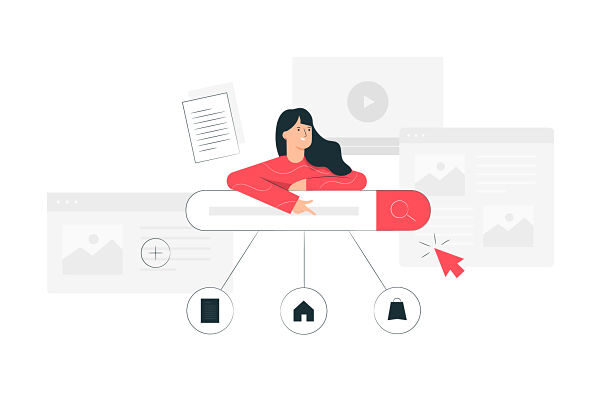Censorship of Google
When people think of Google censoring search results, China is the first nation to come to mind, and not without reason. Until March 2010, Google had submitted Internet censorship
policies to China, blocking the search results of the massacre at Tiananmen Square, the Taiwan Independence Movement, etc.
Google has been strongly criticized for going against its own public philosophy of the generally open Internet; Eric Schmidt, Google’s CEO, once said, “The prize is a world in which every human being starts life with the same access to information, the same opportunities to learn and the same power to communicate. I believe that is worth fighting for”). However, the company’s statement argued that while removing the search results is inconsistent with their beliefs, it is preferable not to be able to operate in China at all. As a result of these criticisms, Google announced in January 2010 that it was no longer willing to censor operations. When the talks with the Chinese government came to an end in March.
Google is making an active effort to stick to its open Internet philosophy. Google released a tool called Google Transparency in September 2010. This tool highlights instances of global
Internet censorship in different countries by displaying the number of requests from these different governments to remove content from Google services.
While many may be familiar with the censorship of Google content in China, the number of Internet censorship requests in other countries may be shocking. Dorothy Chou, a policy
analyst who worked on Google Transparency, notes, “the threat to internet freedom has actually been growing over the past few years…Countries that would be thought less likely to
filter the internet also try” For example, Thailand bans Thai King’s offensive representations, Germany bans neo-Nazi content, Turkey bans YouTube, etc.
An interesting example of censorship that isn’t immediately apparent can be found in Google Street View on Google Maps. Google does not have a street view of military bases, for example, because the Pentagon requested that Google take those images down for security purposes. The EU also suggested at the end of February that Google’s street view is a breach
of EU privacy legislation.
Types of government and censorship
Today, we would think that censorship is an effective mechanism for totalitarian regimes to achieve their objective of controlling the minds of the population. We are thinking of cases
like Hitler’s Germany or the Soviet Union during the Cold War. Totalitarian philosophy is to control the thoughts of the subjects of the state, so that they can control their way of life, their
habits, what they read, what they talk about, in such a way that dissidence becomes impossible. The subjects of the state live enclosed in fictitious reality, or at least a partial reality.
Normally, it’s like a glass enclosure where the community sees itself reflected, sees its surroundings, but they can’t see through it. On the other hand, they can be seen from the outside, with an uncontrolled eye, which can be much more critical.
These systems are far from perfect and sound, and, according to human nature, homogeneity is never fully attained. It is for this reason that different voices and ideas emerge and are
perceived as a threat to the existence and functioning of the system, while free debate of ideas is the best way to convince others. Citing Professor Humberto Maturana, to explain the
reformulation of experience.
International treaties and territorial legislation: examples of censorship around the world
We’re dealing here with the latest attempts at Internet censorship. The short-lived Communications Decency Act was an example of the fact that freedom of expression is so highly valued and constitutionally protected that it is not possible for the lawmaker to attempt to break the state’s constitution. In the case of Reno vs. ACLU, the force of that freedom was confirmed by the judgment of the appeals court in Philadelphia and, when appealed, the Supreme Court found that the law was in violation of the First and Fifth Amendments. This historic ruling was of the utmost importance to the Internet community, reflecting the importance of freedom of expression for this medium.
In the case of China, we know not only that access to the Net is controlled, but also the actions against Lin Hai, who was sentenced to two years in prison for sending e-mail addresses to a publication deemed hostile by the Chinese authorities. Cybercafes must obtain a license and ISPs must register their clients with the authorities. Access is blocked to sites where the content is considered subversive or pornographic by the State, which justifies it on the grounds of national security and the stability of the political system.
In Singapore, control has the same objective—to forbid access to information that is considered a priori harmful by the government to the general public, for whom censorship is stronger than for business users.
In Turkey, a chat forum was sufficient for a young man to be punished for insulting the security forces by disapproving some of the protesters, which is considered a crime in that country. His defense claims that his writings were not for the general public, but only for Internet users in that particular forum.




